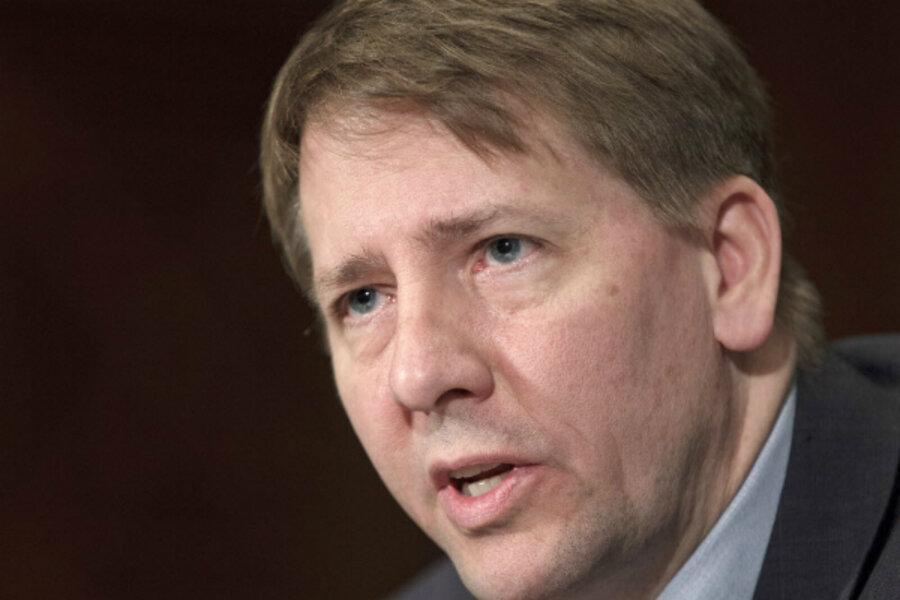The Consumer Financial Protection Bureau is part of the 2010 Dodd-Frank law, establishing a new federal rulemaking, supervisory, and enforcement agency for consumer finance, whose aims include protecting homeowners from predatory mortgage loans and requiring lenders to inform students how much they will owe if they borrow money to go to college.
When the Democratic-controlled Congress pass the legislation, lawmakers pushed through an agency that would be potentially less susceptible to partisan politics. The bureau is run by a single individual, appointed by the president and approved by Congress. Unlike other federal agencies such as the Securities and Exchange Commission, it won't have commissioners appointed by the president with the "advice and consent" of Congress. And instead of getting its funding from Congress, the consumer bureau is funded by the Federal Reserve. However, it is independent from the Fed, although it is within the Fed’s organizational structure.
Romney worries that the bureau will place burdensome regulations on the financial sector that will have the effect of reducing lending to small businesses, and that Congress won't be able to curb the CFPB. “It seems like they have unlimited authority to regulate consumer financial transactions,” says the Romney aide.
If elected president, Romney would at the very least put a leash on the CFPB. On May 29, Glenn Hubbard, his chief economic adviser, told The Wall Street Journal that Romney will propose a new system of consumer financial regulation that either breaks up the new agency and places its powers within existing financial regulators or moves it outside the Federal Reserve. However, Romney has yet to offer a specific plan.
Obama would try to prevent Republicans from making changes in the agency over the next four years. “We’ve got to make sure our Consumer Financial Protection Bureau that is protecting consumers for the first time isn’t rolled back,” said Obama in a speech in February in San Francisco.
Governor Markell, the Obama surrogate, says the reason for a tough new agency is because of the abuses that took place. “Look, we had banks extending mortgages to people who could not pay them back,” he says.







